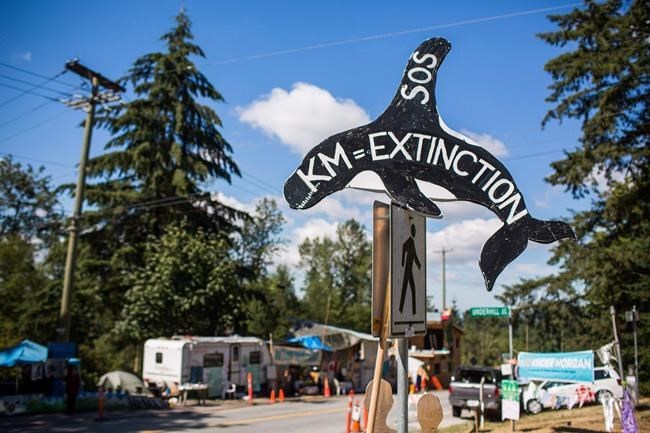 The Trans Mountain pipeline project wasn’t halted because it’s a bad idea. It got derailed because its approval was a railroad job, with we on the West Coast the damsel in distress lashed to the rails.
The Trans Mountain pipeline project wasn’t halted because it’s a bad idea. It got derailed because its approval was a railroad job, with we on the West Coast the damsel in distress lashed to the rails.
The Federal Court of Appeal ruled Thursday that the National Energy Board’s approval process for the project was so flawed — not adequately consulting Indigenous people or taking the impact of increased oil tanker traffic into account — that the project shouldn’t have been approved by Justin Trudeau’s cabinet in 2016.
Trudeau must wear this mess now, but the roots of the ruling go back to the hubris of the Harper Conservatives. They argued that adding pipeline capacity was vital to the national economy, which might indeed be true, but so certain were they in their belief that they made damn sure nothing was going to get in the way, dispensing with dissenting views while steamrollering ahead with both the Northern Gateway and Trans Mountain expansion projects. (Basically, it’s the same argument being flung at Lisa Helps over relocation of the Sir John A. Macdonald statue.) Trudeau might have put the final bullet in Northern Gateway (whose approval was also tripped up by the federal appeal court) in 2016, but did nothing to fix the Trans Mountain process.
> For more on the Trans Mountain pipeline, go to timescolonist.com/more
Neither Alberta nor Ottawa ever understood the true nature of opposition to the pipeline on the coast. They dismissed it as either cynical extortion by a B.C. government holding out for a cut of the petro-profits, or woolly headed hypocrisy by people who moaned about fossil fuels while driving gas-powered cars and heating their homes with oil. They thought the usual collection of indolent bongo-beaters and wild-eyed ideologues who protested against the project were representative of the opposition to the pipeline, when they were not.
Nor was it a matter of Indigenous versus non-Indigenous interests, as the over-simplified version of the story would have it. Thursday’s court decision might have been right in saying the views of First Nations were not adequately considered, but defining what actual, representative consultation looks like isn’t as easy as some assume it to be. Indigenous people from Esquimalt to Edmonton don’t speak with one voice any more than non-Indigenous people do. (The activists and industry leaders who claim to defend Indigenous rights tend to cherry pick which First Nations they support, siding with those whose positions align with their own; Indigenous people must tire of being used as human shields.)
If there is a real split, it’s along geographical lines. Polls might show British Columbians divided over the Trans Mountain expansion, with a slim but growing majority now favouring the project, but the same polls also show the strongest opposition to be on the coast, where views are shaped by the spectre of an ocean-going tanker spilling diluted bitumen.
You can argue about whether or not those fears are well founded, but they are deeply felt nonetheless. By not even considering what was to West Coasters the most important issue in the debate, the safety of the coast itself, the politicians and regulators blew it.
Again, this goes back to the Harper regime, which labelled pipeline opponents as extremists and generally treated all dissenters as kooks.
Trudeau tried to shine his sunny ways on the conflict when he took over, coming up with a three-legged stool of an approach in which he insisted each leg — the pipeline, a $1.5-billion Oceans Protection Plan, and carbon pricing — was essential. Basically, he tried to give all the players — the oil industry and its workers, nervous West Coasters, climate-change activists — something they wanted.
The irony is that Thursday’s halting of Trans Mountain construction also means work on six oil-spill response bases — a key component of the Oceans Protection Plan — has also been back-burnered. The bases, run by the industry-funded Western Canada Marine Response Corporation, were supposed to include four on Vancouver Island: on the Saanich Peninsula, at Becher Bay, in Nanaimo and a joint one for Port Alberni-Ucluelet. The corporation said Thursday that leases have been signed for Port Alberni, Nanaimo and in Vancouver Harbour and on the Fraser River, but construction has not started.
This is what happens when you’re so convinced you’re right that you don’t listen to others.



